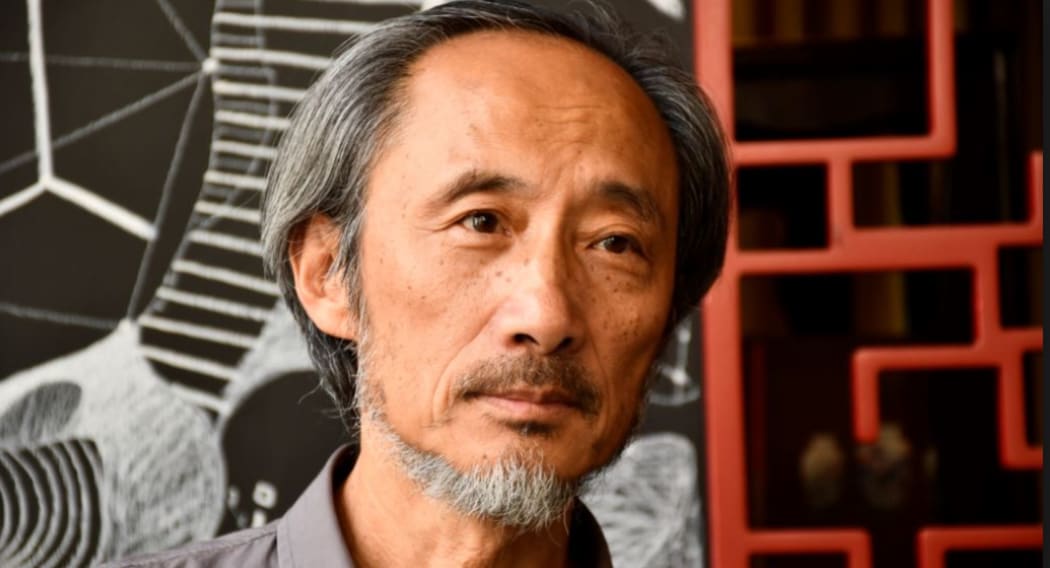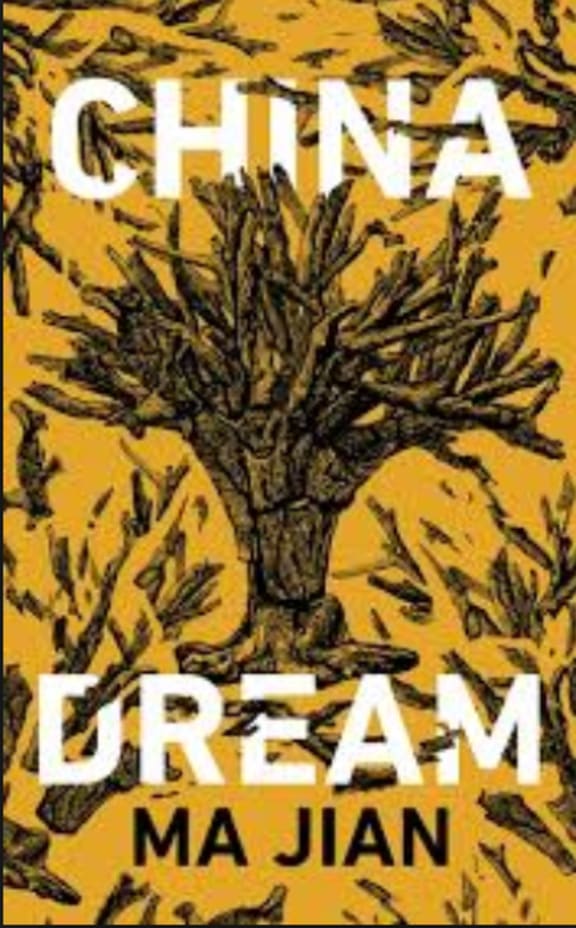Ma Daode is a senior official in a provincial Chinese city. He has everything he could desire. Wealth; he is happily corrupt. Gifts pour in from fawning speculators, at one point mooncakes with gold bars inside. Sex; he has 12 mistresses, whom he nicknames the 12 Golden Hairpins from the Chinese classic, Dream of the Red Chamber. And power; he is in charge of the China Dream Bureau, charged with ensuring public allegiance to Xi Jinping's vision of a resurgent China. Except that Ma Daode's mind is unravelling. Memories of the Cultural Revolution and his own vile deeds keep breaking into the present.
This is the premise of Ma Jian's latest book, China Dream a short, sharp satire on modern China and its determination to become a power in the world while the ghosts of its past remain restless.

Novelist Ma Jian Photo: None
When Ma Daode dozes off, he wakes up to find his adolescent Red Guard self, there watching him. When he gives speeches, he sees himself going off track, mixing his messages, suddenly jumping to Cultural Revolution slogans when he should be leading the charge for Xi. And worse, there are moments when the past so intrudes that he believes he is still a Red Guard fighting the rightists and the old China that Mao so despised.
When he is sent to negotiate with villagers who, inexplicably to him, want to keep their way of life rather than see their village replaced by heated tower blocks a pitched battle breaks out with authorities and morphs into the bloody, bloodthirsty battles between factions of the 1960s and 1970s.
Eventually his own misdeeds - he denounced as a rightist his father, who killed himself - emerge to stalk the present.
Ma Jian has been a relentless critic of China. His books have been banned in China since the late 1980s after he wrote about his travels through Tibet under China control. He took part in the Tiananmen Square protests in 1989 and, when the hopes of the protesters were crushed, he has lived in Hong Kong, Germany and now London. He was called by the Guardian "the Solzhenitsyn of China". The Nobel Literature laureate Gao Xingjian called him "one of the most important and courageous voices in Chinese literature." Yet now none of his books are available within China.
While Ma writes in Chinese, this and his other books have been translated by his partner Flora Drew. They met when she interviewed him on the eve of the Hong Kong handover in 1997. One of the remarkable outcomes of their collaborations is that the books never feel like translations, more like versions of the story in English. In an interview with the Guardian, Drew said, "Knowing him so well means I can in some strange way become him, and write the translation not as a friend or translator, but as Ma would if he were writing the book in English."

Ma Jian's latest novel China Dream Photo: None
Beijing Coma is his Tiananmen Square book told from the viewpoint of a critically injured student. It and The Dark Road, from 2013, are perhaps his masterpieces. Certainly, The Dark Road is his grimmest book. Written after he travelled undercover down the Yangtze River it is about the effects of the One Child Policy, the pollution of the river and China and the constant struggle between a peasant family and the orders of the State. Meili is caught between the desires of her husband to have sons to carry on his name and the State which is determined to control her body. Ma is adept at focusing on the biggest issues facing China. His Tibet in Stick out your Tongue is a sullen place, occupied by Han Chinese, and Tibetans often sunk in despair, deviancy or deprivation. Beijing immediately banned it for failing to show the ‘great strides" of Tibetan people in building "a civilised socialist Tibet".
If The Dark Road is Ma's 1984, China Dream is like his Animal Farm. It is a short, sharp political fable with dashes of Ma's humour which had been buried under the horrors of The Dark Road.
Since Xi Jinping came to power in 2012 he has pursued the idea of the great rejuvenation of the Chinese nation. China will overcome the "century of humiliation" in which colonial powers like Britain and France divided it up, then Japan invaded. China, says Xi, must continue to develop economically and militarily until it has taken its place as a Great Power.
The problem, Ma Jian says in China Dreams, is that much of the political rhetoric is a fantasy. It was fantasy when factions of Red Guards fought battles on tiny points of Maoist rhetoric, and it is fantasy now as the State tries to blot out individual dreams and impose one national Dream, he seems to say.
By the end, Ma Daode is completely unhinged. He has been undone by his corruption. Standing on an ancient tower, Ma's mind collapses, and the crowd becomes a "chaotic scrum of people and ghosts"; dead Red Guards, modern politicians, Xin Jinping followers, Ma Daode's lovers, his parents who he neglected, corrupt bureaucrats and his schoolmates. All crazily arguing with him over the China Dream.

